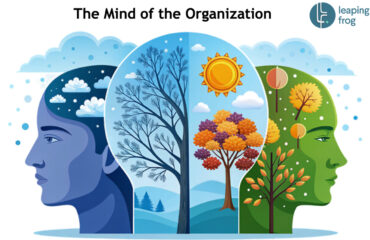
The story so far….
Parasara Muni (father of Vyasa) explains the word “Bhagavan” in Vishnu Purana as –
Bhagah asya asti iti bhagavan – the one who has bhaga is called Bhagavan. Bhagavan is the one who has Bhaga, the six-fold virtues in absolute measure.
Aisvaryasya samagrasya viryasya yasasah sriyah jnanavairagyayoscaiva sannam bhaga itirana (Visnu-purana: 6.5.74)
Jnana all knowledge; vairagya – total dispassion; viryasya – the capacity to create, sustain and resolve; yasas – absolute fame; Sri – all wealth; and aisvarya – overlordship.
In the context of an organisation, these six virtues can be related to that of a leader. We discuss the 2nd virtue here -Vairagya (Absolute Dispassion)
Vairagya – Absolute Dispassion
One who has total dispassion has no longing, no insecurity. They are full.
This virtue, in a more profound sense, talks about the concept of “security”. It negates the paradigm of scarcity and competition, which gives rise to feelings of insecurity. Also, it indicates that we are “Purna” – we are complete, full; we are part of the infinite consciousness. The Isha Upanishad starts with the invocation:
ॐ पूर्णमदः पूर्णमिदं पूर्णात्पुर्णमुदच्यते
पूर्णश्य पूर्णमादाय पूर्णमेवावशिष्यते ॥
ॐ शान्तिः शान्तिः शान्तिः ॥
Om Puurnnam-Adah Puurnnam-Idam Puurnnaat-Purnnam-Udacyate
Puurnnashya Puurnnam-Aadaaya Puurnnam-Eva-Avashissyate II
Om Shaantih Shaantih Shaantih II
Om, That is Full, This also is Full
From Fullness comes Fullness
If Fullness is taken from Fullness
What remains is Fullness.
Beautiful concept, isn’t it? So, where is the concern for scarcity? The concept reinstates our oriental belief and philosophy that time and space are infinite.
A sense of scarcity gives rise to insecurity. And insecurity, in turn, leads to attachment….or in simple terms, possessiveness. The urge to take everything in one’s control and not give it away. Be its attachment to material well-being or the extreme possessiveness of responsibility and power. The tendency to not trust anyone and hence not empower anyone also comes from insecurity.
On the other hand, a sense of security leads to detachment or vice-versa. Detachment should not be confused with disassociation. Detachment is the ability to “give way” to less valuable possessions in life to more valuable ones. To get associated with actions that would add more value to self, organisation, community, and society.
It’s like going up a ladder. To reach the topmost stair of the ladder, one has to let go of the lower stairs.
So what happens in the organisational context? How can this concept be related to a true leader in any organisation?
Let’s talk about some functional aspects that authentic leader practices, making them what they are.
A true leader can delegate successfully. Delegation is “giving way” to activities and responsibilities to take on more significant accountabilities, which add more value to the self and organisation. This ability is directly related to how one finds oneself to be secured. And the sense of being secured comes from the conviction of being “full and complete” and not scarce.
A leader constantly strives to grow in knowledge, responsibility and contribution. If one were to show qualities of extreme attachment to current functions and duties without the ability to give away the controls, then they are not genuine leadership material. This indicates that the element of insecurity plays a strong in them.
Hence, effective delegation is a function of security. However, situations of pseudo-leadership also occur in organisations; this happens when incompetent leadership material is given leadership positions. In such cases, the element of insecurity may get reflected very strongly. Such insecurity maybe because of the scarcity of needed knowledge and ability to befit and justify their position.
Such a situation of insecurity and scarcity leads to faulty delegation practices, leading to discontentment amongst delegated people.
Trust and empowerment are two other essential criteria in authentic leadership. Trust is a reflection of security. Trust comes from a strong sense of self-security in knowledge and ability. And again, this security is a function of the importance of being complete or without scarcity. This strength enables a true leader to trust and empower others and help them grow. It does not give them a feeling of insecurity or competition; on the other hand; it gives leaders a sense of accomplishment.
Great people grow Big by making others Big
Small people grow Big by making others Small
Security and a strong sense of completeness (not an end but a means to an end) lead to trust. Trust leads to effective delegation. Delegation provides the platform for more value addition and responsibility. This leads to growth.




